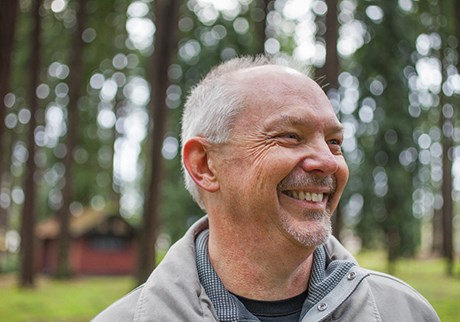William Paul Young explains the theology behind his best-selling novels and why he’s no longer at war with himself.

William Paul Young has touched a nerve—if sales of millions of books is any sign. Like his sleeper best-selling novel, The Shack, his new book, Cross Roads (FaithWords), covers God, the human condition, and the process of transformation—though a fair amount of teaching finds its way into the story. It's teaching that many Christians have found liberating, and many other Christians have rejected. Given the genre of writing, it's understandable that some readers are left confused about what Young really believes. Christianity Today editor Mark Galli decided to find out.
What are you fundamentally trying to address in your writing?
The nature of the character of God as relational, as a love that pursues us relentlessly and wants to burn out of [us] everything that keeps us from being free. I want to bring to light the process of transformation, what that looks like.
I grew up fundamentalist, evangelical, Protestant. Those are my roots, and they are good roots. But it means the Pharisees are my people. I grew up with an image of God that was not helpful—largely the face of my father expanded. My father and I worked for years to get to a place where reconciliation was possible, and we have. But that had a huge impact on how I viewed the nature and character of God, a theology that fundamentally taught that Jesus came to save us from the Father.
Your books playfully but insistently picture God as Trinity. Why is the Trinity so important to you?
Because it grounds both relationship and love. If you have a distinctiveness of persons within the very nature of God, and you have oneness (which is absolutely essential), you have a basis for love inside the relationship of the Father, Son, and Holy …
Source: Christianity Today Most Read